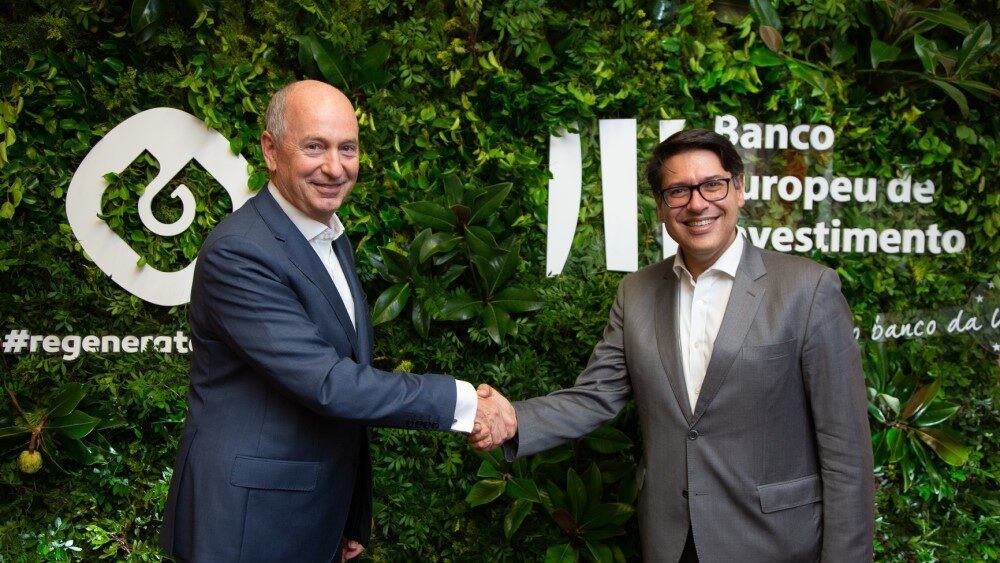Main shareholder of Pego power station wants to continue with reconversion
Trust Energy "has not given up on the reconversion project" presented to the government for the Pego plant in Abrantes.
Trust Energy, the main shareholder of Tejo Energia, “has not given up on the reconversion project” presented to the government for the Pego plant in Abrantes, which stopped producing from coal, the chief executive told Lusa.
Speaking to Lusa, José Grácio, chief executive of Trust Energy, said on Tuesday that the plant “remains available to the national grid to produce energy until November 30,” the date the government set for the end of the coal cycle in this unit in Abrantes (Santarem), the last coal-fired station in the country.
The manager said that Tejo Energia, a consortium made up of TrustEnergy (Engie and Marubeni), which holds 56%, and Endesa (with 44%), proposed to the government to start, right after the end of the coal cycle, a process to convert the plant to a green energy “cluster”, maintaining all jobs.
“Tejo Energia presented a [new] project to the minister of the environment in July, as agreed, and he never replied to it. He never explained why he changed his mind and decided to go for a public tender, four months before the date set [for the end of coal]. The initial explanations, that there was a disagreement between shareholders, do not make sense,” said José Grácio, who reported that “the company has not given up on the project.
TrustEnergy’s project, presented in July to the government, is to convert the Pego coal-fired power plant into a Green Energy Production Renewable Centre, a project that would imply an investment of €900 million, the company told Lusa last May.
TrustEnergy “understands that the best option would not be the dismantling of the structure, but the development of an ambitious project of fair transition of the Pego Thermoelectric Power Plant to a Renewable Centre of Green Energy Production in its several forms”, said José Grácio.
TrustEnergy’s CEO explained that the project the company has not given up on involves “electricity, hydrogen and other renewable gases from several primary sources of local energy, such as solar, wind and forestry waste”.
This project, which the company wants to implement with support from the Fund for a Just Transition (FJJ) and the Recovery and Resilience Plan (PRR), and to which it said at the time it would apply, “will be a sustainable way forward” and aims to “transform a threat”, which would be the closure of the plant, “into a great opportunity for the region and for the country,” with its functional reconversion in Abrantes.
The Pego Thermoelectric Power Plant is the largest national energy-producing centre, with an installed capacity of 628 megawatts (MW) at the coal plant, and 800 MW at the gas plant, which will continue its activity, with a contract valid until 2035.
Despite being technologically renovated a few years ago to be less polluting, and even with the galloping rise in energy prices (in the Iberian market it rose in less than a year from 30 euros per MWh to 281 euros), the government maintained its political decision to close the coal plant, opening a public tender, which is running until 17 January, for the award of the connection point to the electricity grid.
With the closure of the coal-fired power plant and doubts about the future of the 150 or so workers, Tejo Energia has hired a specialised company to provide support in finding new jobs, the manager noted.
“We hired an ‘outplacement’ company, specialised in human resources placement,” in order to support the most qualified workers.
“These are people who, obviously, are going to work in other regions of the country, they are not going to stay in Abrantes, with all that this implies,” he said, referring to the impacts on the economy and social fabric of the municipality of Abrantes in the surrounding region.
The minister of the environment and climate action said on Sunday that there would be no social problems for workers with the end of the Pego power plant and expressed confidence that they would be integrated into new projects.


